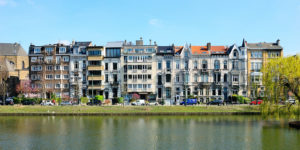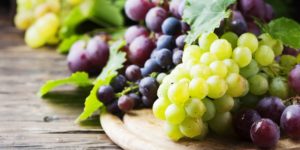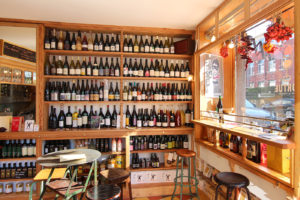Belgian wines on the rise
- Home
- Latest news
- lifestyle
- Belgian wines on the rise
Go back to all the latest news
Belgian wines on the rise
Belgium is a country of beer, everyone knows that. But in the shadow of our Gueuzes, tripels and abbey beers, Belgian winemaking has seen enormous growth over the past ten years. All thanks to climate change and…Ford Genk.
Wine production isn’t new to our region. It’s said that the Romans brought wine to ‘this flat country’, but no one has been able to provide hard evidence of that so far. We do know for sure that wine was being produced in our region as early as the seventh century. When it started to get warmer here, between 950 and 1250, winemaking began to really flourish in fact. Then there was a Little Ice Age, however, although it didn’t manage to completely put an end to all winemaking. That didn’t happen until much later, when the Tambora volcano erupted in 1815, causing a sudden worldwide cooling. After that, it wasn’t until the 1960s that we saw winegrowers reappear in our country, the largest of which is undoubtedly the Genoels-Elderen wine castle in Riemst.

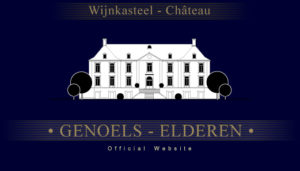
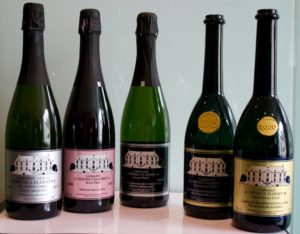
Ford Genk
Wine production in Belgium never became really big business though. Over the past ten years, however, we have seen an increase in the area covered by vines from fewer than 100 hectares to more than 450 hectares today, divided among around 320 winemakers. This is just a drop in the cask compared to the traditional wine countries, where some estates cover a larger area than all the winegrowers in Belgium put together. But the trend towards scale increase and further professionalisation does seem to be firmly established. Surprisingly enough, Ford Genk is partly to thank for this. The province of Limburg was given a lot of government support, in order to survive that economic blow. Part of this was allocated at the time to the founding of a professional research department to support the winegrowing sector in our country. Winegrowing has received government support in other regions too. The best-known Belgian wines with an official Belgian Protected Designation of Origin (AOC) include Hageland wine, Hesbaye wine, Heuveland wine and the wines from the Sambre-Meuse Valley. We also have two AOCs for sparkling wine, namely for high-quality Flemish sparkling wine and Crémant de Wallonie.
Wonderfully fresh
In addition to government support, winegrowers have also benefited from the recent warming of the climate. In Southern Europe, the number of hours of sunlight is so high that the grapes contain too few acids and too many sugars. This means that the wines are becoming paler and have less freshness.
It’s this freshness that sets our Belgian wines apart from wines produced throughout the rest of Europe. In Belgium, we find mainly fresh grape varieties like Chardonnay, Pinot Noir and Pinot Gris. It’s no coincidence that these are classic varieties also often found in northern France. After all, the champagne region is only 250 km from Brussels. Sparkling wines therefore offer the highest potential for Belgium. We use exactly the same method as in the champagne region to produce these.
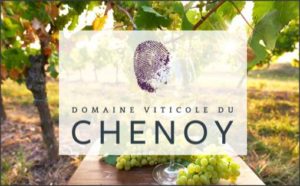
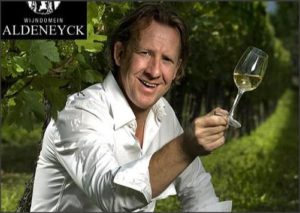
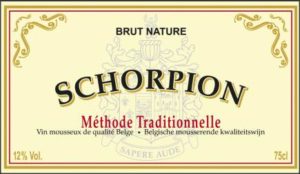
This is why the term Méthode traditionelle can be found on most of our bottles. Major Belgian sparkling wines come from wine estates like Domaine du Chesnoy, Schorpion, Championnot, Meerdael and Aldeneyck, which are now on a par with their French colleagues. The Chant d’Eole from Quévy in fact won the prize for the best sparkling wine in the world at the international wine competition Concours Mondial de Bruxelles this spring, while Ruffus can call itself the most well-known and best-selling Belgian sparkling wine.
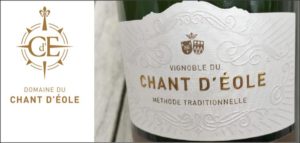
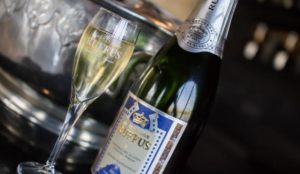
Belgian white wines like the Chardonnay by Chateau Bon Baron in Dinant or the Ô de Craie from Liège are slowly making a name for themselves too though. The absolute top wine from our country currently comes from Hesbaye: the Chardonnay Clos d’Opleeuw, which can stand up to comparison with the better white burgundies with ease. Numerous top restaurants in our country have now added this wine to their wine lists. Now it’s time for the rest of the world to follow suit.
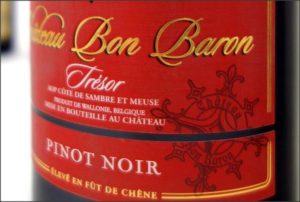
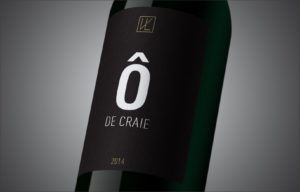
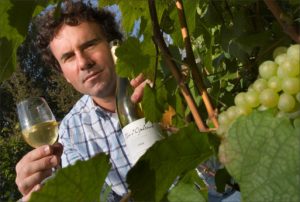
Feeling thirsty? Then take a look here.
